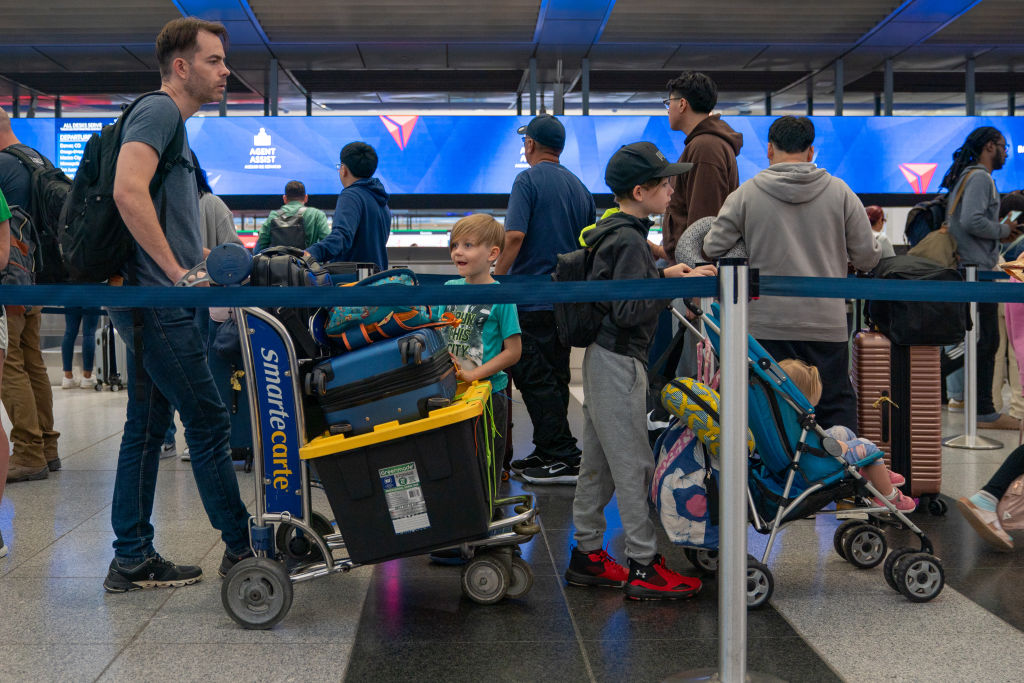US CDC Expands Airport Surveillance to Prepare for Increased Respiratory Virus Circulation
The US Centers for Disease Control and Prevention (CDC) has issued a warning that hospitalizations due to COVID-19, RSV, and flu are expected to exceed pre-pandemic levels. With the approaching autumn and winter seasons, respiratory infections such as influenza and RSV are more prevalent in the United States. In response to this projected rise in respiratory diseases, the CDC has joined forces with Ginkgo Bioworks and XWELL to enhance traveler-based monitoring.
According to VOA, this extended effort will be implemented at four of the seven participating airports in the United States in order to improve respiratory virus diagnosis and surveillance. The monitoring program, which will be launched at John F. Kennedy, San Francisco, Boston Logan, and Washington Dulles airports, will cover over 30 additional viruses, bacteria, and antibiotic resistance targets, including influenza A and B, RSV, and SARS-CoV-2.
The program, a public-private collaboration between the health department, Ginkgo’s Concentric Biosecurity and Public Health Section, and XWELL’s XpresCheck diagnostic testing service, involves voluntary nose swabbing travelers and sampling of airport wastewater. This proactive approach helps in the early detection of novel SARS-CoV-2 variants and other infections, which is crucial for effective epidemic management.
The CDC’s Traveler Genome Sequencing (TGS) program has already registered over 360,000 air passengers as of September 2023, as stated in their news release. Program participation is optional and anonymous, and includes flights from over 135 nations in all WHO regions. The TGS program, which began collecting nose swabs from overseas passengers in 2021, has expanded as more tourists provide samples. Currently, the organization collects around 6,000 nose swabs per week and has sequenced over 14,000 samples from travelers from various countries for examination.
In August 2022, the TGS program introduced wastewater monitoring alongside nasal swab sampling. This innovative method involves collecting wastewater from an aircraft using a specialized gadget, which is then transported to a lab for RT-PCR testing. In the case of positive pathogen tests such as COVID-19, samples are fully sequenced to identify any variations.
Dr. Cindy Friedman, the head of the CDC’s traveler genomic surveillance program, emphasized the significance of this approach, stating that “One sample from an aircraft coming from a geographic destination afar can give us information potentially about 200 to 300 people that were on that plane,” as reported CNN. Ginkgo Bioworks, a biotech firm, has collaborated with the US government to establish a global biosecurity infrastructure to prevent, detect, and respond to biological threats. Matthew McKnight, the general manager of biosecurity at Ginkgo Bioworks, stressed the importance of monitoring systems like TGS in preventing future health disasters and called for the implementation of similar programs worldwide to enable early detection.
Despite progress in surveillance measures, COVID-19 remains a challenge. The TGS program has already detected multiple COVID-19 variants, including Omicron BA.2, BA.3, XBB, and BA.2.86, six weeks prior to statewide reporting. Currently, COVID-19 hospitalizations remain high, with over 15,700 cases per 100,000 individuals in the week ending October 28. Additionally, there have been over 600 COVID-19-related deaths in the past week.
While national flu activity is increasing slightly, it remains at a low level. Public health laboratories recorded 189 influenza cases in the week ending October 28, with 77% being influenza A and 23% influenza B.
In conclusion, the US CDC has expanded its airport surveillance program in anticipation of a surge in respiratory viruses. By partnering with Ginkgo Bioworks and XWELL, the CDC aims to improve respiratory virus diagnosis and surveillance. The program, which involves voluntary traveler-based monitoring and wastewater sampling, has already yielded promising results in detecting COVID-19 variants and other infections. However, the challenges posed COVID-19 persist, and continuous monitoring and early detection remain crucial in managing the ongoing pandemic.

